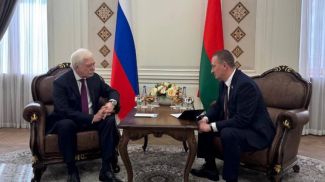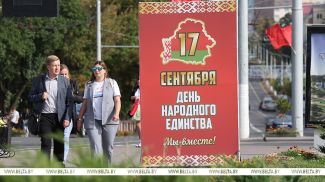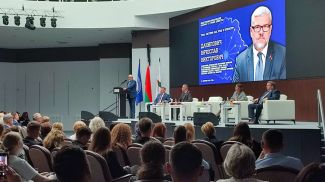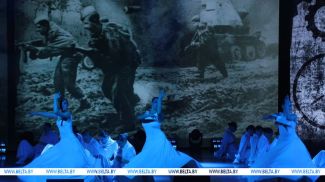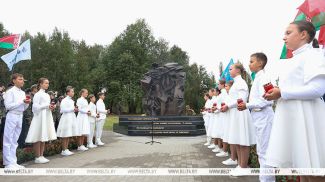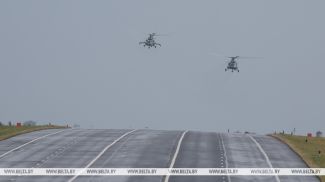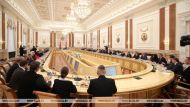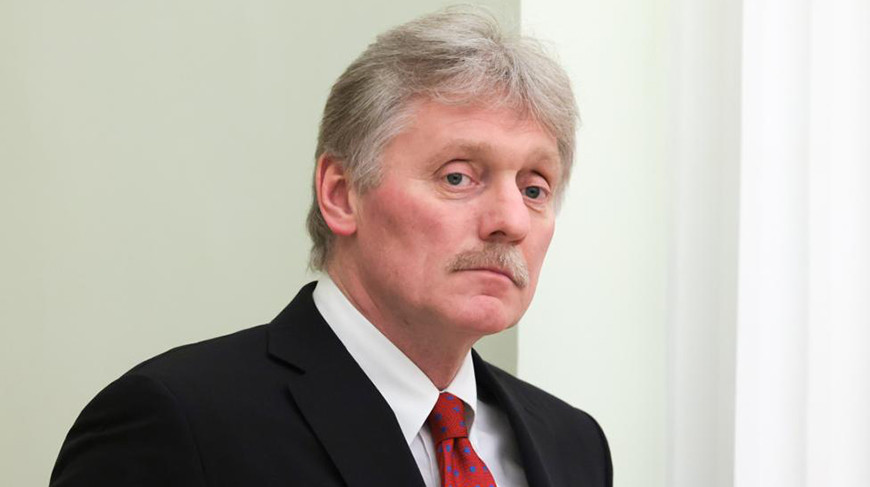
MINSK, 26 September (BelTA) – Russian President Vladimir Putin made statements on nuclear deterrence in the context of an unprecedented confrontation and direct involvement of Western nuclear powers in the Ukrainian conflict, Russian presidential spokesman Dmitry Peskov told the media, TASS reports.
"This time and before reasonable leaders and politicians have fully understood the seriousness of President Putin's statements, especially when it comes to such an unprecedented confrontation provoked by the direct involvement of Western countries, including nuclear powers, in the Ukrainian conflict," he said, when asked whether Western politicians had understood the seriousness of Putin's statements the day before.
When asked if the changes in Russian nuclear doctrine were a signal to the West, Dmitry Peskov said: "This should be considered as a definite signal."
The spokesman noted that Russia's "nuclear deterrence is being adjusted on account of elements of tension that are developing along the perimeter of our borders". He added that he could not yet announce the date when the updated Russian nuclear doctrine is published.
Vladimir Putin held a meeting of the Russian Security Council on nuclear deterrence on 25 September. The televesid part of the meeting included an introductory speech by the head of state, where he spoke about Russia's draft updated nuclear doctrine. The updated version of the document suggests that aggression against Russia by any non-nuclear-weapon state, but with the participation or support of a nuclear-weapon state, should be considered as a joint attack on the Russian Federation. The updated version also defines the conditions for the launch of Russia’s nuclear weapons. Russia will consider such a possibility as soon as it receives reliable information about a massive launch of aerospace attack means and their crossing of the state border. As the Russian president clarified, this means strategic and tactical aircraft, cruise missiles, drones, hypersonic and other flying vehicles. Russia reserves the right to use nuclear weapons in the event of aggression against Belarus, including if the enemy, using regular weapons, poses a critical threat to sovereignty.
The current version of the Russian nuclear doctrine, which is to be amended, was adopted in June 2020. It replaced a similar document adopted ten years earlier.
"This time and before reasonable leaders and politicians have fully understood the seriousness of President Putin's statements, especially when it comes to such an unprecedented confrontation provoked by the direct involvement of Western countries, including nuclear powers, in the Ukrainian conflict," he said, when asked whether Western politicians had understood the seriousness of Putin's statements the day before.
When asked if the changes in Russian nuclear doctrine were a signal to the West, Dmitry Peskov said: "This should be considered as a definite signal."
The spokesman noted that Russia's "nuclear deterrence is being adjusted on account of elements of tension that are developing along the perimeter of our borders". He added that he could not yet announce the date when the updated Russian nuclear doctrine is published.
Vladimir Putin held a meeting of the Russian Security Council on nuclear deterrence on 25 September. The televesid part of the meeting included an introductory speech by the head of state, where he spoke about Russia's draft updated nuclear doctrine. The updated version of the document suggests that aggression against Russia by any non-nuclear-weapon state, but with the participation or support of a nuclear-weapon state, should be considered as a joint attack on the Russian Federation. The updated version also defines the conditions for the launch of Russia’s nuclear weapons. Russia will consider such a possibility as soon as it receives reliable information about a massive launch of aerospace attack means and their crossing of the state border. As the Russian president clarified, this means strategic and tactical aircraft, cruise missiles, drones, hypersonic and other flying vehicles. Russia reserves the right to use nuclear weapons in the event of aggression against Belarus, including if the enemy, using regular weapons, poses a critical threat to sovereignty.
The current version of the Russian nuclear doctrine, which is to be amended, was adopted in June 2020. It replaced a similar document adopted ten years earlier.




